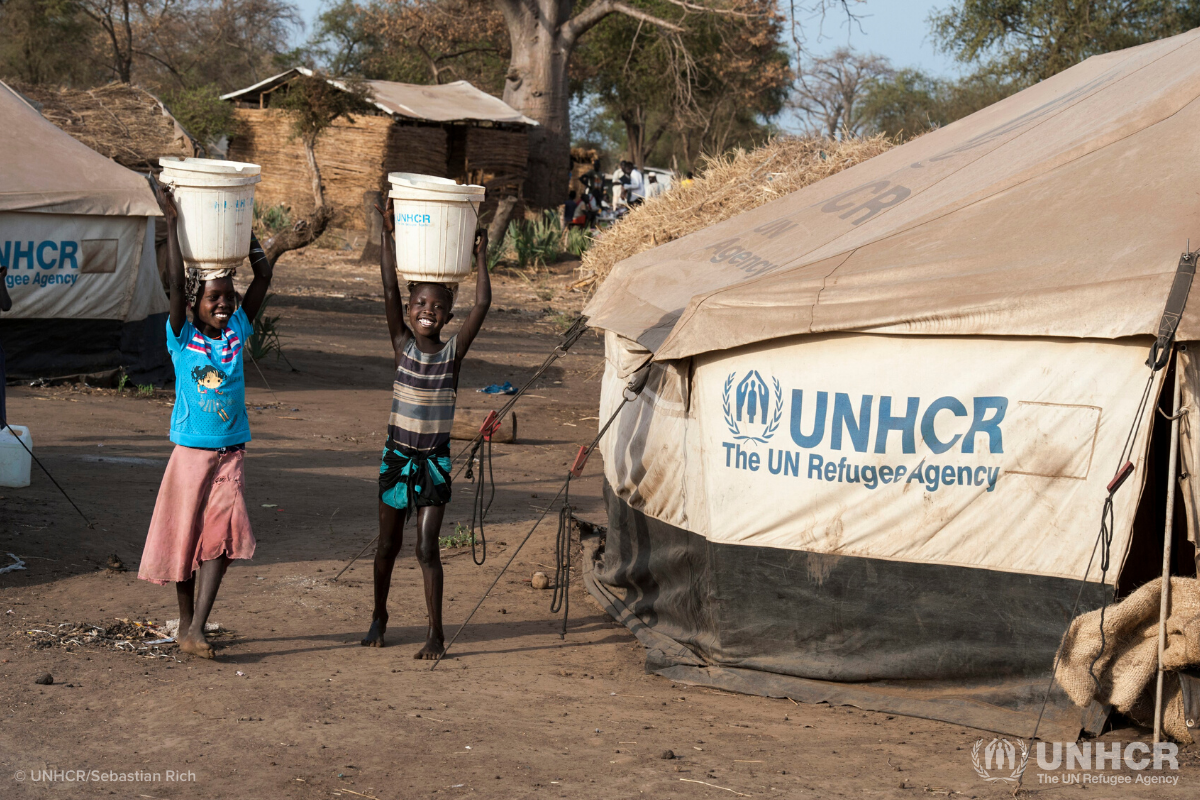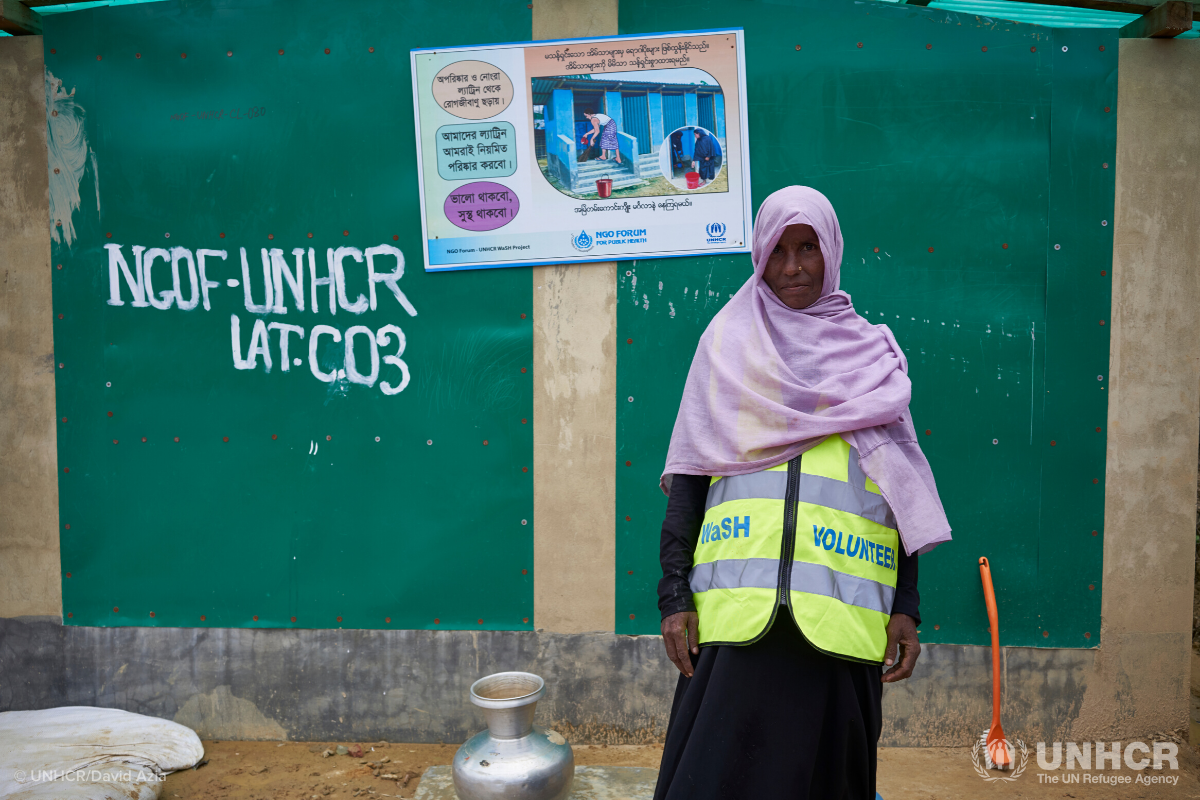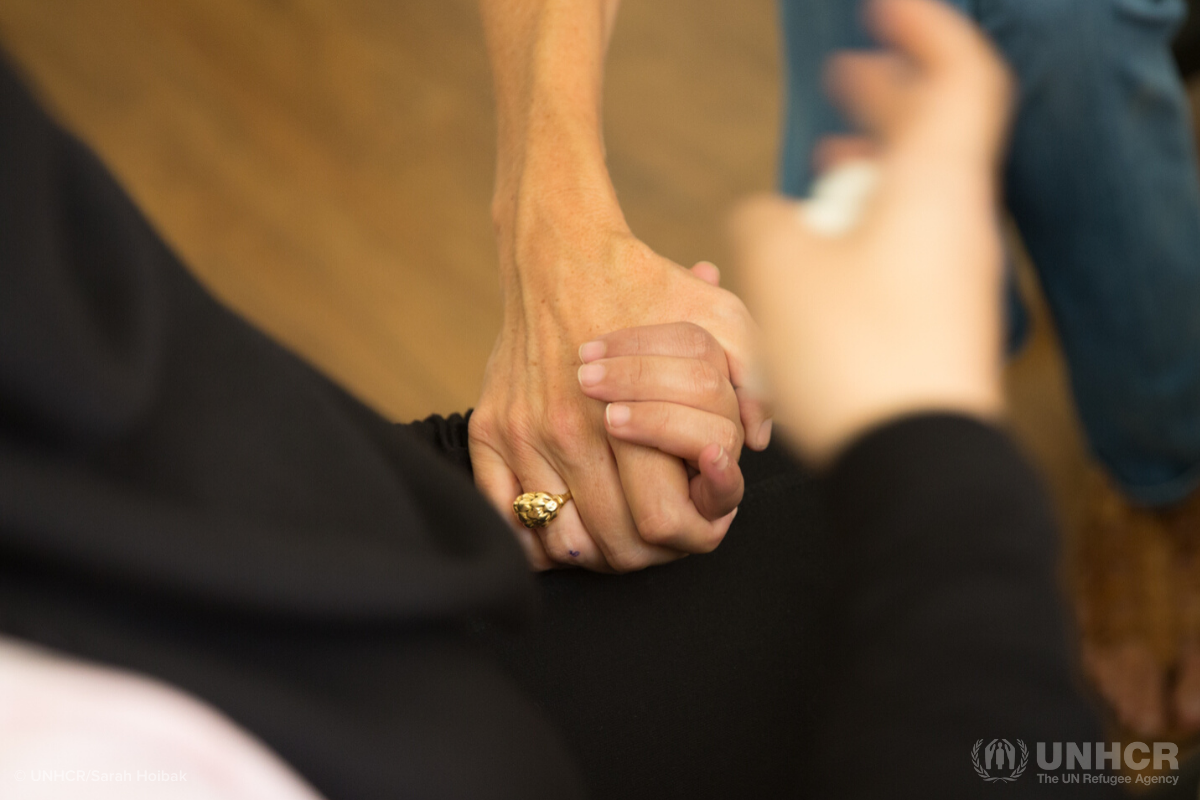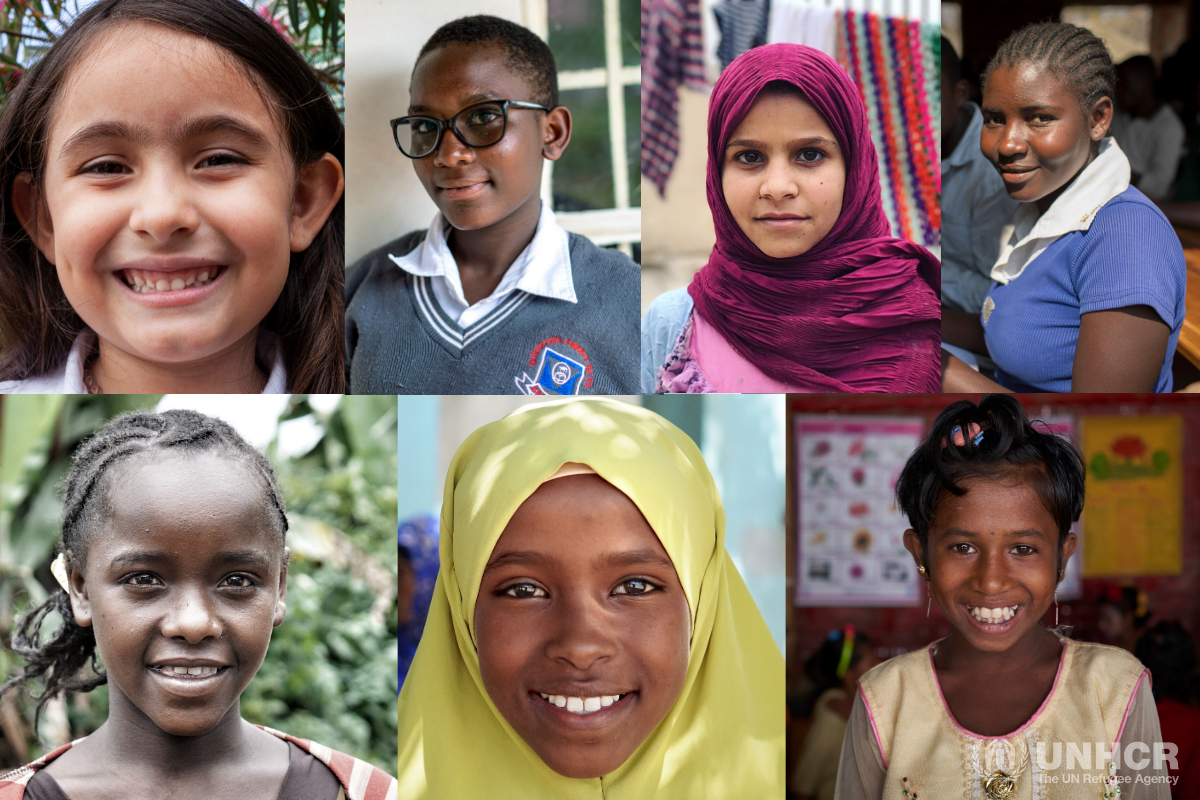Refugee women and girls make the world a healthier place
This World Health Day, people all over the world are coming together to support frontline health workers and help stop the spread of coronavirus (COVID-19).
In refugee communities, women and girls play an important role in implementing healthy practices and helping those in need. Check out these five ways refugee women and girls are making the world a healthier place.
Gathering clean water for their families and communities

Refugee girls play a vital role in displaced populations’ ability to not only survive, but thrive by collecting water for their families and communities. For many, this means long daily travels to gather water from far away wells and safe water sources. The journeys they take each day may consume many hours, but the importance of their work cannot be stressed enough. The water collected is used for cooking, drinking, cleaning and maintaining good hygiene. During times of crisis and outbreaks of disease, this water can mean the difference between health and illness for thousands of people.
Making Soap
“We make the soap to help the Syrian refugees,” says Um, a volunteer in Za’atari refugee camp.
Women-run businesses in refugee camps are few and far between, but these women are not only running a successful factory, they are helping refugees maintain good hygiene at the same time. Women like Um, who live and work in Za’atari refugee camp, are making fresh, new soaps. What started out as a way to help their families stay healthy has grown into a booming business that serves the Syrian refugee community and beyond.
During difficult times, like the coronavirus outbreak, the women give out soap to their neighbors so that they too can practice good hygiene.
Teaching good hygiene practices in refugee camps

Women in refugee camps are taking on leadership roles to stop the spread of coronavirus. Samuda, a Rohingya refugee in Bangladesh, is one of many women who have stepped up to help in this effort. She has been trained by UNHCR as a water a sanitation volunteer and she takes her job of preventing the spread of disease in the camp very seriously.
Women like Samuda are leading classes on best practices for good hygiene and spreading the message that people must wash their hands and cover their mouths when they sneeze in order to stay safe and prevent an outbreak of coronavirus in their community. “We are working for the community,” Samuda shares as she explains why volunteering is so important during these difficult times.
Tackling mental health challenges head on

Many refugees have been exposed to extreme trauma watching their loved ones be killed, seeing their homes destroyed, running for their lives and arriving in new unfamiliar places. Post-traumatic stress disorder (PTSD) and other mental health conditions can be hard to treat in any circumstance, but in settings where healthcare is limited, mental health care often goes unaddressed.
UNHCR recognizes the importance of mental health care and prioritizes it when treating refugees and other displaced populations. In refugee communities around the world, women are being taught that there is no shame in asking for help and that their mental health is an important part of their overall wellbeing. Group therapy sessions for refugee women, like those provided for rape victims in Bangladesh, help them realize that they are not alone in their struggles. By lifting one another up, these women become healthier and stronger.
Becoming doctors

These little girls come from all different backgrounds but they have one big thing in common, they all want to be doctors when they grow up! Many children living in conflict zones and unsafe regions do not have access to education—their schools have been destroyed and they have been forced to stay home. Refugee girls are at an even higher risk of missing out on educational opportunities. But these little girls are making education their number one priority. They go to school in refugee camps and host communities and work hard to be at the top of their classes. They have big dreams of helping others—"I want to be a doctor, so I can help the people in my community,” says 11-year-old Meret—and they won’t stop until their dreams come true.
Now it’s your turn to take action…
Help support refugee women and girls around the world this World Health Day by becoming USA for UNHCR’s newest monthly donor. By empowering one woman today, you can positively impact the lives of thousands more tomorrow.


